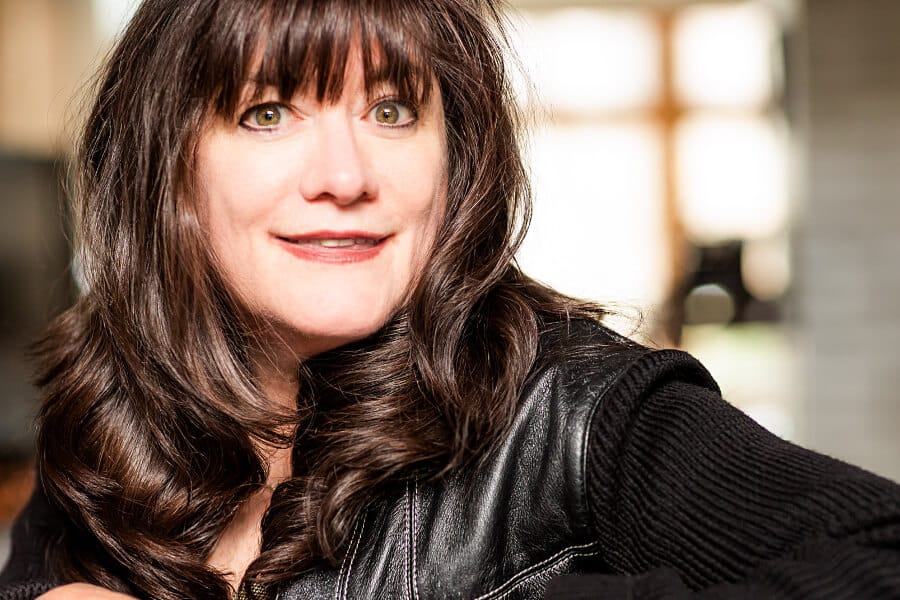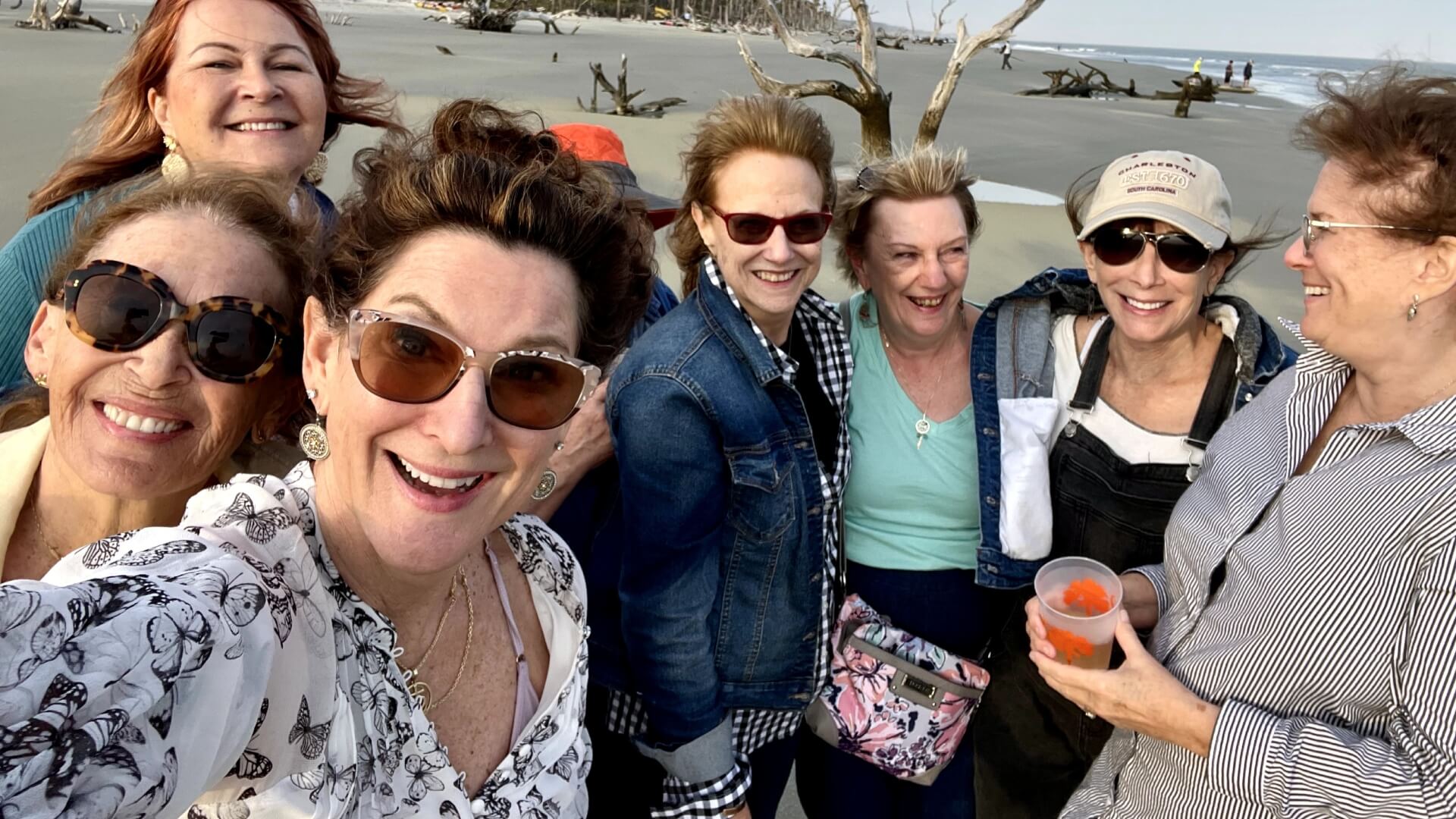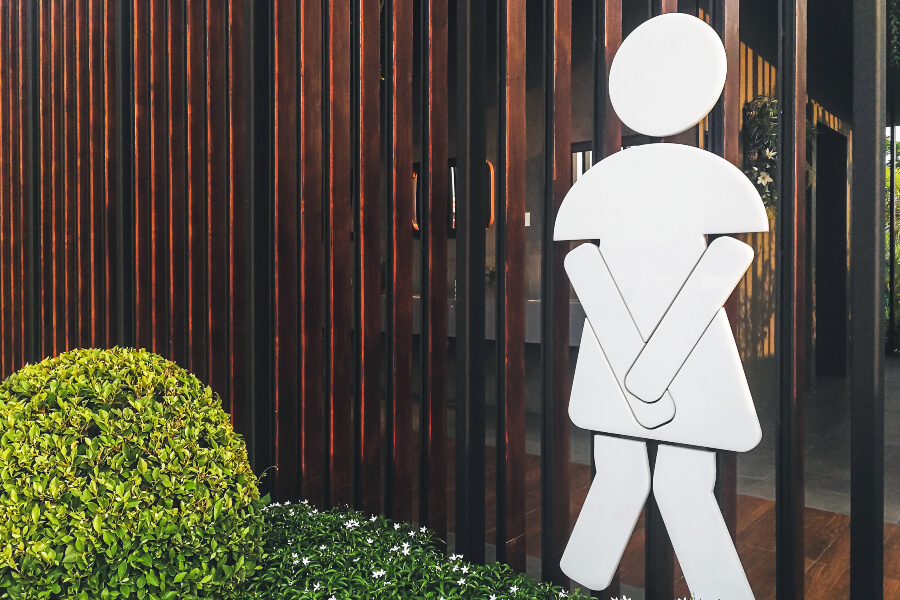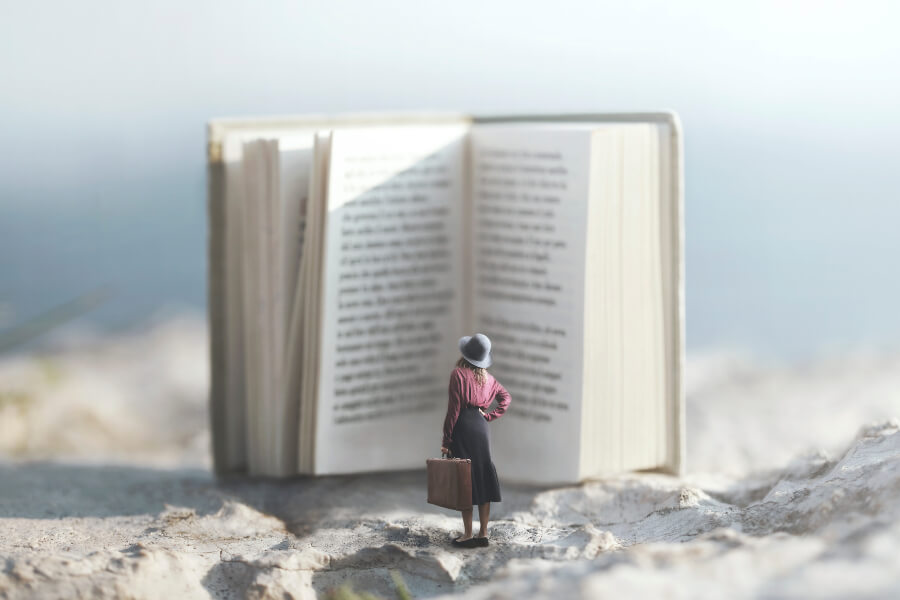“Back then, when we all first read him, white male privilege was taken for granted. But how we felt about books then and returning to them now—well, it’s not an easy answer,” Holly George-Warren tells me in a phone conversation from her home near Woodstock, NY. The “him” she refers to is the legendary Jack Kerouac. Right now, George-Warren is currently immersed in the King of the Beats, as she’s writing an authorized biography of him for Viking Press.
When we talk, we are coming up, in days, on what would have been the 100th birthday—March 12—of dashing, roiling but complicated Kerouac, whose image had whipsawed over the course of his life. As a fabulously handsome young man, he had inspired a dramatic turn from ‘50s conventionality to ecstatic, turbulent, Buddhist-tinged hedonism. What romantic young or very young woman didn’t love that he’d written On The Road in three weeks, typing on a humongously long scroll of paper, and had emoted that “the only people for me are the mad ones, the ones who are mad to live, mad to talk, mad to be saved, desirous of everything at the same time”?
Kerouac’s image whipsawed over the course of his life.
But he had died, at 47, in 1969, living with his mother in Florida, “when alcohol had completely overtaken his life and he’d gone from Buddhism back to Catholicism,” George-Warren reminds us. Plus there was the fact that life in the Beats world was as sexist as it was in the Mad Men universe. (Accidentally, and tragically, even a little more so, if you count William Burroughs’s trying to shoot an apple off his wife’s head and getting her between the eyes instead.)
George-Warren, who has been “researching and investigating his life around the clock, and spending hundreds of hours trying to put in perspective what his relevance today is”—is taking a break from the Kerouac-related symposia and birthday events to talk to me. She’s also spending time organizing a super-feminist (and super-fun, including a pajama party) event that will cap off the last week of Women’s History Month.
On March 25 through 27, at the famous Bearsville Theater in Woodstock, she will be co-hosting “We Got the Beat,” a three-day-long Women In Music Summit, featuring some of the top women in that field: DJs, performers, filmmakers, photographers, and others (many—like Holly at midlife or older). The event will feature performances—including one by iconic back-up singer Darlene Love—screenings, panels, yoga, and tributes (yes, there will be one to the irreplaceable Ronnie Spector).
The event will celebrate the accomplishments of women in music, support professional growth, and take a stand against the industry’s sexism, in terms of the wage gap, sexual harassment and much more. (Such a relatively small number of people in the industry are female, only 21 percent of Grammy winners, three percent of record producers, and 13 percent of songwriter credits.)
Read More: Cass Elliot’s Daughter Talks About the Star’s Bravery
A Tantalizing Mix
Feminism and Kerouac—what a tantalizing mix. “When I first read On The Road,” Holly says, “his protagonist Sal Paradise was not your typical Post WWII stoic male character. Instead, he was vulnerable, sensitive, expressed his emotions—there was an androgyny there—and I connected with this character and identified with him. It unfortunately didn’t occur to me that the richly textured characters in On The Road were all male. Today I recognize that the women in the book are mostly one-dimensional…either users themselves or to be used by the frenetic adventuring men.”
Still, in real life, Holly has found, Kerouac liked strong, capable women, such as steely and thoughtful Joyce Johnson, whose memoir Minor Characters, one of my favorite books of all time, resonated with her own self-transformation from earnest middle class girl to questing Bohemian.
In real life, Kerouac liked strong, capable women.
Holly George-Warren and I got to know each other a bit two or so years ago after I, like so many others, rave-reviewed her masterful Janis Joplin biography, Janis: Her Life in Music, for the New York Times Book Review. Others had written about Joplin, but George-Warren had most effectively cut away the one-dimensionally bawdy, good-time-girl image that had clung to the complicated, barrier-breaking blues singer (and writer and producer). I’d called her book “the significance-establishing project Joplin appreciators have been waiting for.”
Holly had come to New York to take her husband, Robert Burke Warren, to a Broadway play for his birthday, so the three of us had met for pre-theater drinks. They proudly told me about their son Jack, who was in college at Wesleyan. Warren—a classically handsome Southerner—smiled a lot and was deceptively laidback. I realize now that the smile was perhaps the sheepish, understated look of a highly confident and entertaining mega-multi-talent (he is or has been a performer, teacher, musician, actor, ghostwriter, and writer of essays, criticism, and novels. Among his many accomplishments was was releasing seven CDs, touring the world as a bass player, playing Buddy Holly in a musical and ghostwriting for Gregg Allman.
As for George-Warren, she was so vivid and talkative and unaffected—retaining a bit of her Asheboro, North Carolina accent—that it was easy to forget how accomplished she was. She was an eight-years-long editorial director for Rolling Stone Press, editing and packaging 40 titles running the gamut from American Roots music to music of the Seventies. She’s the author or co-author of sixteen of her own books (her biographies of country-western star Gene Autry and of esoteric soul-rock singer Alex Chilton are two of the best known. She’s been awarded two Grammy nominations, for writing liner notes. She’s held significant positions with the Rock ‘n’ Roll Hall of Fame, taught at major colleges, and contributed to dozens of publications. This is one very dynamic couple.
The First Encounter
George-Warren read On The Road when she was sixteen. “It changed my life,” she said. “Kerouac completely opened my mind to a whole other life that existed outside of my small hometown in North Carolina. He made me want to be a writer, to travel, to learn about Buddhism, about people unlike myself. I started hitchhiking. The longest distance was from North Carolina to Florida, but I mostly just hitchhiked around North Carolina.”
When a professor of hers at the University of North Carolina at Chapel Hill brought Allen Ginsburg, Peter Orlovsky, and William Burroughs to campus, “I went to their readings and we got to meet them afterwards. I’d also just seen Bob Dylan and Patti Smith for the first time—and I knew I had to move to New York!”
Reading On The Road at age 16 changed her life.
When she decamped to the East Village in 1979, Holly “lived music,” she tells me. “I fell into the whole scene that came out of punk. I played electric guitar in lots of bands.” During one early gig with Das Furlines—the all-chicks punk-polka band for which she wildly strummed her Jazzmaster—she and her bandmates were playing an extremely long double bill with a band called the Fleshtones. “We were there from three in the afternoon til four A.M.”
Holly bonded with the Fleshtones’s bass player—a handsome fellow Southerner who had started out as a teenage bass player for drag star Ru Paul and who later veered into musical theater—over their mutual love for Anne Rice novels. That, of course, was Robert Burke Warren. They married, bought a weekend cabin in the Catskills while living on the Lower East Side. Then, in 2002, they moved upstate to the Victorian house where they’ve lived full-time ever since.
Going Deeper
Years ago, while working for Rolling Stone, George-Warren produced a book on the Beats. It was such a passion project that it roused her to go back to work when Jack was still a baby. A big part of the joy was working with women who were partners of the Beats men (Joyce Johnson was with Kerouac, Carolyn Cassady with Neal Cassady, Hettie Jones with Leroy Jones-turned-Amiri-Baraka. Jones’s memoir, How I Became Hettie Jones lovingly recounts how, in the late ‘50s, a Jewish girl named Hettie Cohen was repudiated by her family for marrying a young Black Beat poet from Newark and remade her whole life as a founder of the new Bohemia until he left her to embrace his ethnicity.
George-Warren and her husband took then-one-year-old Jack on the Beat book’s tour. Years later, George-Warren would reveal that Janis Joplin, too, had also been hugely influenced by Kerouac, taking to her own version of “the road” and always, always insisting she was a Beatnik, not a hippie. The Kerouac estate executor, Jim Sampas, took in both author’s and subject’s love for Kerouac. “And he liked the idea of the project going to a woman and to a writer with a basis in music rather than in literary culture,” Holly says.
She has full use of Kerouac’s archives and complete permission to quote from the material.
All of this helped her get her “dream deal” the first estate-authorized biography of Kerouac, who has been written about many times before. She’ll have full use of his archives and “complete permission to quote from the material; they cannot control anything I write.” She had the same deal for the Janis book, and the well-earned and curated privilege paid off then, as it almost certainly will now.
She’s found a great deal of vulnerability and idealism in the early Kerouac, she says. “His brother, Gerard, horribly died a slow death, at age nine, and it had a huge effect on him.” She’s also appreciating “his reverence for nature and for the environment. During the pandemic, on long walks down my six-mile country lane—seeing the woods and birds and animals—I would think about how he expressed his fear that humanity was damaging nature and the environment.”
Next up, Warren-George will be writing text on a book about Dolly Parton and her wardrobe over the years, for Penguin, as well as a monograph on Jerry Jeff Walker (anyone remember the poignant “Mr. Bojangles”?) to accompany a museum exhibit. Her husband has a soulful novel out now—Perfectly Broken—that harkens a bit to his life when he and George-Warren moved from Manhattan to the Catskills with four-year-old Jack and suggests that he was reliant on this strong woman. And he will soon release Cash On Cash, writings on Johnny Cash for the Chicago Review Press. As for Jack, he just got an apartment in Brooklyn and is now a filmmaker “juggling lots of projects, just like his parents.”
I see George-Warren as a busy, happy feminist, both earnest and badass, who would have greatly impressed the dashing, ecstatic-souled man who was “mad to talk, mad to live, mad to do everything at the same time” but secretly relied on stable females.
Read More: A Half Century After She Became a Star, A Candid Talk With Carly Simon and Her Daughter





















0 Comments